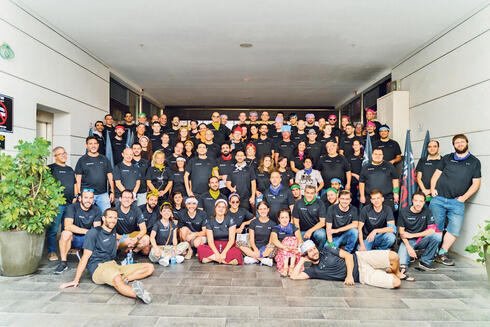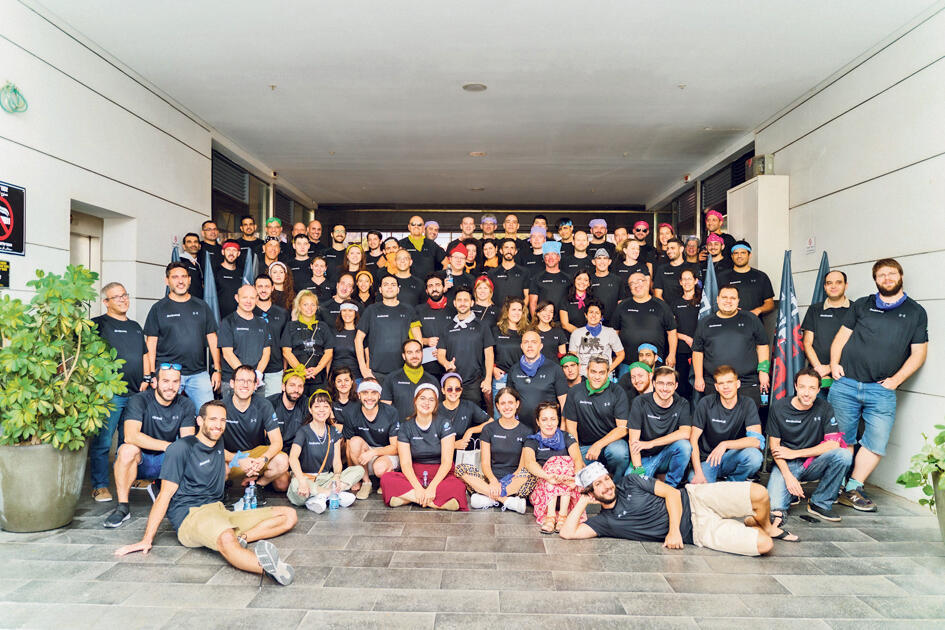
Salesforce’s $2B Own buyout and Tower’s India move show Israel’s strength—and its vulnerabilities
Why Israeli high-tech’s global success may come at a cost to the local economy.
Three seemingly unrelated events took place this past weekend in the Israeli high-tech industry. First, Data company Own (formerly OwnBackup), a unicorn founded in 2015 by Ariel Berkman, Daniel Gershuni and Eran Cohen, was sold in an impressive $2 billion exit to the global information systems giant Salesforce. In India, it was announced that the Israeli chip manufacturer Tower Semiconductor will build a new chip factory in the country with a $10 billion investment, in partnership with the Adani Group. Meanwhile, Mobileye shares fell 8% in Wall Street trading on Friday following reports that Intel plans to sell some of its stake in Amnon Shashua's company.
But a clear connection ties these events together: they illustrate both the tremendous capabilities of Israeli high-tech and its fragility as a critical engine for Israel's economy. On one hand, they showcase the strength of local talent, which has created knowledge worth $2 billion to Salesforce, attracted years of courting by the Indian government for Tower's engineers, and filled gaps left by Intel's struggles. On the other hand, these events underscore how much the sector relies on foreign companies' investments and the Israeli government's ability to create the conditions necessary for growth.
Until now, the government largely refrained from interfering in the flourishing high-tech sector, unlike in other areas. However, after a year of political turmoil, extensive reserve duty mobilizations, and the aftereffects of an attempted judicial overhaul, the time has come to recognize that high-tech is not just a cash cow for filling occasional budget gaps. It is a critical industry requiring strategic planning and forward-thinking policies.
It's certainly impressive that Tower was selected to build a large chip factory in India, according to a tweet by the Chief Minister of Maharashtra, even though there hasn't been an official announcement yet. But the question the Israeli Ministry of Finance and other relevant ministries should be asking is why Tower isn’t building a new factory in Israel. In fact, just a few months ago, Tower closed Fab 1, its first factory in Migdal Ha'emek, due to obsolescence. When Russell Ellwanger, Tower’s CEO, was asked why the company wouldn’t build a new plant in Israel, he responded with a cynical laugh: "There is no subsidy in Israel that would make establishing a plant here profitable. The United States offers a grant of 35% of establishment costs, India gives 75%, while Israel currently provides only a 9% grant, compared to the 34% we received previously."
A similar story can be told with Intel's decision to freeze the construction of a new factory in Kiryat Gat, a critical employment hub for Israel, particularly in the south. While Intel’s crisis is the primary reason for the freeze, the state’s heavy reliance on the company should be causing sleepless nights for the Minister of Finance, the Minister of Economy, and even the Prime Minister. Wall Street analysts are already circling around Intel, which was once the global giant of processors and is now valued at just $80 billion—less than Nir Zuk's Palo Alto Networks. If Intel splits into multiple companies, as is now being considered, it could pose a real threat to Israeli employment, particularly for the 13,000 workers Intel currently employs in the country. While there is demand from competitors like Nvidia, which is eager to hire ex-Intel employees, it’s hard to believe that thousands of workers would be able to find new jobs quickly.
A stark illustration of Intel’s troubles appeared last Friday with Mobileye’s stock performance. Following reports from Bloomberg that Intel is considering selling part of its 88% stake in Mobileye, the Jerusalem-based manufacturer of autonomous vehicle systems, the stock fell more than 8%, and Mobileye is now trading below $10 billion for the first time. Intel’s dire need for cash means they are willing to sell shares even though Mobileye is trading at record lows due to business difficulties and downgraded second-quarter forecasts.
Even the seemingly positive news of Own’s $2 billion exit should raise red flags for policymakers in Jerusalem. Although the company is registered in Israel, most of its founders are Israeli, and it has Israeli investors, Salesforce’s announcement didn’t highlight that Own is an Israeli company. In the past, acquisitions of Israeli companies were celebrated, emphasizing Israel’s technological edge. However, over the years, as Own raised over half a billion dollars, it shifted its center of gravity outside of Israel. Today, its headquarters are in the U.S., nearly all of its management is American, and only 200 of its 800 employees are based in Israel, primarily in what is now considered a local development center.
As with Tower and Mobileye, Own’s story provides reasons for pride but also for concern. While Finance Minister Bezalel Smotrich can be pleased with the revenues from the exit, he must also consider the missed opportunity: had Own remained independent, it might have gone public in a few years, expanding its Israeli workforce—an outcome that will no longer happen.















